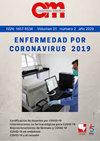Current status of the programs for detection of hearing loss in children younger than six months in Cali
IF 1.3
4区 医学
Q3 MEDICINE, GENERAL & INTERNAL
引用次数: 3
Abstract
Background: Data is scarce in Colombia when dealing with the current circumstances of programs for detecting hearing loss in children younger than six months and, therefore, statistical data is limited on congenital or earlyacquired deafness. Studies have been conducted in the country on detection and prevention of hearing problems in the healthcare institutions in Antioquia, Quindío, Cauca, Valle, and Risaralda. All these studies were carried out between 1993 and 1995 and included children older than one year of age, which shows evidence of the lack of knowledge about the importance of early detection in the hearing-communicative health of children. Objective: To identify the current procedures and protocols to detect hearing loss in children younger than six months in Cali through a descriptive research in different healthcare institutions of the city. Methods: A descriptive study was carried out with a population of 722 private, public and/or mixed Health Service Providing Institutions from the city of Cali, registered in the database of the Department of Health of Valle del Cauca, Colombia in February 2007. A list was filled out to determine which of these institutions had services like delivery room and/or growth-development programs and/or audiology services and it was found that these aspects were met in 151 institutions that constituted the research sample. Thereafter, a survey was applied in these institutions to identify the procedures utilized for hearing loss detection, the health professionals that carry this out, and the follow up and the speech-language treatment performed to the children detected. Results: 95% of the healthcare institutions surveyed (144 institutions) do not perform procedures to detect hearing loss in children younger than six months. Only six of the private-sector institutions in Cali performed such procedures. The procedures used by these six institutions are all performed with equipment and protocols for objective tests. Conclusions: No public entity in the city of Cali has programs for early detection of hearing loss. It is necessary to implement strategies to train institutions, and associations of government institutions involved in healthcare, so that they can apply programs of universal hearing screening for neonates, while they disseminate such programs at regional and national levels.卡利市6个月以下儿童听力损失检测方案的现状
背景:在哥伦比亚,关于检测6个月以下儿童听力损失项目的现状数据很少,因此,关于先天性或早期获得性耳聋的统计数据有限。在国内对安蒂奥基亚、Quindío、考卡、瓦莱和里萨拉尔达的保健机构中听力问题的发现和预防进行了研究。所有这些研究都是在1993年至1995年期间进行的,其中包括一岁以上的儿童,这表明缺乏对早期发现对儿童听力-交际健康的重要性的认识。目的:通过对卡利市不同医疗机构的描述性研究,确定目前检测6个月以下儿童听力损失的程序和方案。方法:对2007年2月在哥伦比亚考卡谷卫生部数据库中登记的卡利市722家私营、公共和/或混合卫生服务机构的人口进行了一项描述性研究。研究人员填写了一份清单,以确定哪些机构提供产房和/或生长发育项目和/或听力学服务等服务,结果发现,构成研究样本的151家机构满足了这些方面的要求。此后,在这些机构中进行了一项调查,以确定用于听力损失检测的程序,执行这项工作的卫生专业人员,以及对检测到的儿童进行的随访和言语治疗。结果:95%的受访医疗机构(144家机构)没有对6个月以下儿童的听力损失进行检测。在卡利,只有六家私营机构办理了这类手续。这六个机构使用的程序都是用客观测试的设备和规程进行的。结论:卡利市没有公共机构有早期发现听力损失的项目。有必要实施战略,对参与保健的机构和政府机构协会进行培训,使它们能够应用新生儿普遍听力筛查方案,同时在区域和国家一级推广这种方案。
本文章由计算机程序翻译,如有差异,请以英文原文为准。
求助全文
约1分钟内获得全文
求助全文
来源期刊

Colombia Medica
MEDICINE, GENERAL & INTERNAL-
CiteScore
2.00
自引率
0.00%
发文量
11
审稿时长
>12 weeks
期刊介绍:
Colombia Médica is an international peer-reviewed medical journal that will consider any original contribution that advances or illuminates medical science or practice, or that educates to the journal''s’ readers.The journal is owned by a non-profit organization, Universidad del Valle, and serves the scientific community strictly following the International Committee of Medical Journal Editors (ICMJE) and the World Association of Medical Editors (WAME) recommendations of policies on publication ethics policies for medical journals.
Colombia Médica publishes original research articles, viewpoints and reviews in all areas of medical science and clinical practice. However, Colombia Médica gives the highest priority to papers on general and internal medicine, public health and primary health care.
 求助内容:
求助内容: 应助结果提醒方式:
应助结果提醒方式:


